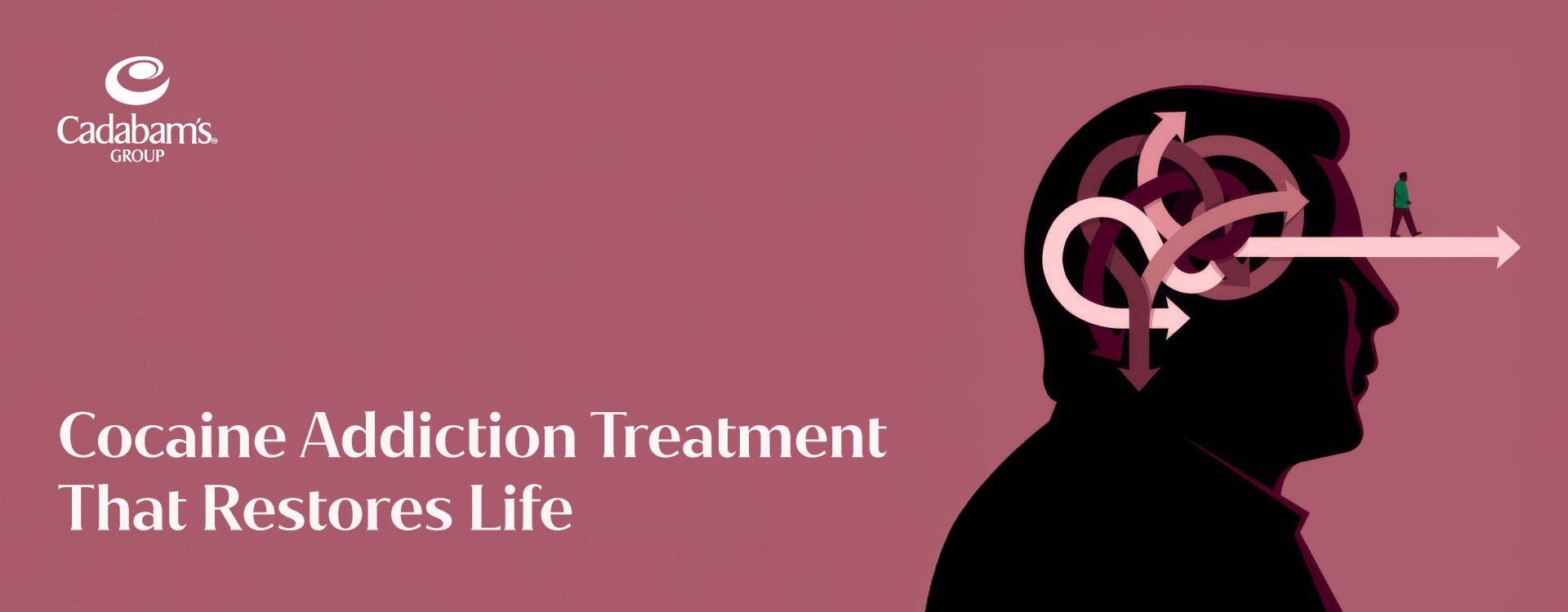Drug addiction or substance abuse is one of the fastest-growing concerns for governments across the globe, with no signs of downward trends in its users. There are several treatments available to help one get out of the clutches of drug addiction, and long-term rehab is considered one of the best options.
In this article, we will explore and understand the role of rehab, especially long-term rehab, and some of its benefits.
Introduction to Long-Term Rehab
Firstly, there are different types of rehabs for different types of illnesses and injuries. Substance abuse is one of the conditions that sometimes require rehab to recover.
In rehab, there are two types one is short-term rehab which can last anywhere from 1 week to 90 days. The other one is long-term rehab which can range from 6 months to a year or more.
Let’s understand its concept in detail.
What is the long-term residential substance abuse treatment?
Long-term rehab is, in a way, an extended version of short-term rehab programs, which typically starts with medical detoxification, and then continues with different types of therapies, skill training, relapse prevention planning, etc.
In long-term rehab, patients or residents receive a home-like setup with proper supervision, treatments, and a safe environment with zero scope for relapse. Here, residents share the space with people experiencing the same conditions and with the same goal.
The Journey to Recovery: A Holistic Approach
Unlike short-term rehab, long-term rehab follows a holistic approach with the goal of addressing physical, psychological, and spiritual aspects of your well-being. It also provides a proper structure and environment for individuals to develop tools that can help them stay sober for an extended period and prevent relapse.
A long-term rehab center also helps the residents to adopt healthy lifestyles and develop relationships with peers in recovery.
Benefit 1: Enhanced Success Rates
Long-term rehab isn't just about extended treatment; it's about dramatically improving your chances of long-term recovery. Studies show a significant boost in success rates compared to shorter programs, with individuals developing the tools and support network needed to stay sober for years to come.
The Statistics: Success Rates Compared
When it comes to long-term rehab, there are multiple benefits, one of the standout benefits of long-term in comparison to short-term is its success rate. Many research suggests long-term rehab can drop the relapse rate to 40-60 per cent and has a higher percentage of sustaining recovery.
Personal Stories of Success
At Cadabam’s, we are proud to boast many inspiring success stories from individuals who have overcome addiction through long-term treatment. Many testimonials showcase the life-changing impact of our program. Here are a few quotes from our residents about their journeys to recovery, the challenges they faced, and the tools they gained to achieve lasting sobriety.
"Being sober is better than being an addict. I want a sober life, I want to live with my family, I want my family back." - This powerful quote highlights the core desire most people in recovery share: a life free from addiction and reconnected with loved ones.
“When I came here, I had many business tensions and a lot of addiction. Now, I'm very happy I decided to come to Cadabam's. This is the best place I would recommend to people with addiction." - This testimonial speaks to the transformative power of our program. It shows how we can help individuals not only overcome addiction but also find greater peace and happiness.
Their stories offer hope and encouragement to anyone battling addiction, demonstrating that a fulfilling life is possible on the other side.
Benefit 2: Comprehensive Support Systems
Support is something that we all need in our lives, and it’s true and very much needed for someone who is recovering from substance use. In long-term rehabilitation, you receive constant support not just from mental professionals and staff but also from peers in recovery.
Emotional and Psychological Support
As mentioned earlier, under long-term rehab, a person undergoes different therapies that offer both emotional and psychological support. Therapies like individual therapy, group therapy, CBT, MT, support groups, etc., address emotional and psychological symptoms of drug addiction like low self-esteem, loneliness, isolation, shame, guilt, etc.
Community and Peer Support
Support plays an important role in recovery; when one is in a rehab center, he/she receives support from multiple fronts. Community and peer support can provide opportunities for residents to learn new skills, share experiences, and receive encouragement and resources, creating a sense of belonging and thus countering major symptoms like loneliness and isolation.
Benefit 3: Tailored Treatment Plans
Every one of us is built differently, and our reactions to drug addiction also vary greatly. Similarly, how we respond to drug addiction treatment also differs.
Individualized Care: Addressing Unique Needs
At long-term rehabs, mental health professionals understand and analyze the conditions, such as duration, type of drug, medical and family history, etc, of each individual and meticulously craft tailored treatment plans that suit their medical needs and meet their expected goals.
The Role of Continuous Assessment
One of the major benefits of long-term rehabilitation is its continuous assessment of your condition. Under rehab, you will be under constant observation and assessment which allows the therapists, counsellors, and other mental health professionals to monitor your recovery journey.
Benefit 4: Development of Coping Strategies
One of the most significant concerns of drug addiction is relapse risk, and according to data available, 40- 85 percent of people taking treatment for drug addiction relapse within a year.
Building Resilience: Techniques and Practices
In long-term rehab, one can reduce this margin significantly. Here, individuals with drug addiction learn various effective strategies and coping mechanisms that help them manage or reduce the risk of relapse to a great extent.
Other than this, residents also champion various positive lifestyle changes and practices that help them improve the quality of their life outside rehab life.
Real-World Application: Preparing for Challenges
Unlike short-term rehabilitation, long-term rehab teaches and equips you with various tools that can help you identify triggers, preventing cravings for drug use. Under this program, therapists help you learn methods like meditation exercises, relaxation techniques, communication skills, and how to manage stress without resorting to drugs.
Benefit 5: Long-term sobriety and Reduced Relapse Risk
The ultimate goal of long-term drug addiction rehab is to help individuals attain long-term sobriety and develop capabilities to manage relapse risk.
The Link Between Duration and Sobriety
There are many research studies suggesting that individuals who complete long-term rehabilitation reduce the relapse risk by 40-60 percent. Other studies also indicate that most relapse happens within the first 90 days of abstinence, suggesting long-term rehab is more beneficial in drug addiction.
Preventing Relapse: Strategies and Support
Through therapy, support groups, and skill-building activities, long-term rehab ensures that individuals learn to identify triggers, develop healthy coping mechanisms, and create a relapse prevention plan.
Embracing the Path to Lasting Recovery with Cadabam's Anvita
Drug addiction is tough and poses a great many challenges for an individual to get back to life on their own. However, with the right treatment and support, one can heal. If you or anyone you know is struggling with drug addiction, then we can help you.
At Cadabam’s Anvita one of India’s leading long-term rehab centres, we make recovery from drug addiction possible., At Anvita, we are not just offering recovery, but a recovery with comfort, care, and world-class amenities.
With a holistic treatment approach, our experienced professionals ensure you receive continuous care and extended support throughout your recovery journey. So, don’t wait until it’s too late. Start your journey to sobriety with Cadabam’s Anvita.
If you are searching for a solution to your problem, Cadabam’s Rehabilitation Centre can help you with its team of specialized experts. We have been helping thousands of people live healthier and happier lives for 30+ years. We leverage evidence-based approaches and holistic treatment methods to help individuals effectively manage their Addiction. Get in touch with us today. You can call us at +91 96111 94949.
FAQs
1. Why do we need long-term care?
Long-term care for drug addiction is essential for sustained recovery, addressing underlying issues, preventing relapse, and promoting overall health. It provides ongoing support, therapy, and medical care, helping individuals rebuild their lives and maintain sobriety over time.
2. What are the goals of long-term care?
The goals of long-term care for drug addiction are to achieve sustained abstinence, improve mental and physical health, rebuild social and occupational functioning, and enhance overall quality of life through ongoing support, therapy, and relapse prevention strategies.
3. What is the benefit period in a long-term care policy?
The benefit period in a long-term care policy is the length of time the policy will pay for covered services, which can range from a few years to a lifetime, depending on the policy terms chosen.
4. What are short-term and long-term health benefits?
Short-term health benefits of overcoming drug addiction include improved energy, mood, and mental clarity. Long-term benefits involve enhanced physical health, reduced risk of chronic diseases, improved relationships, and improved quality of life.
.webp)




.avif)


